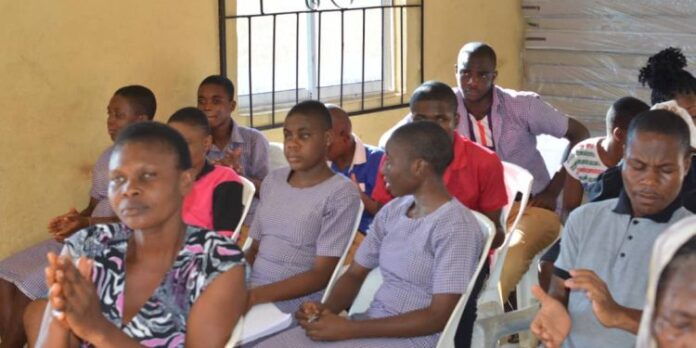In a surprising turn of events, the Joint Admission Matriculation Board (JAMB) is under scrutiny as students with disabilities express frustration over challenges encountered during the supposedly free registration process for the 2024 UTME/DE. Despite JAMB Registrar Prof Ishaq Oloyede’s announcement on January 15 that all categories of Persons with Disabilities (PWDs) would receive free application documents, reports from various states paint a different picture.
Zahraddin Mahrazu, a visually impaired SS3 student from the Special Education School in Kano State, approached the JAMB office with high hopes but was stunned to be told to pay for registration. Mahrazu’s experience echoes the sentiments of others, highlighting a significant discrepancy between the announced initiative and the actual implementation on the ground.
“I was told I have to pay because they do not have any directive on that. They also said there is a possibility that they will pay me back my money within two or three weeks,” shared Mahrazu. He emphasized that none of his disabled classmates at the Special Education School registered without making payments, further raising concerns about the execution of the free registration scheme.

Joy Ekojonwa-Sunday, a 24-year-old visually impaired lady, faced a similar situation at the JAMB office in Orogun. She recounted being told to pay for registration and expressed disappointment, stating, “I didn’t bother to go there again because it was a bit far from me.” Eventually, Ekojonwa-Sunday had to register at another center, incurring a cost of 9000 Naira.
The challenges extended beyond individual experiences, with disability rights advocate Mrs. Matilda Otitoju shedding light on the selective nature of the scheme. Otitoju revealed that the program initially targeted only Blind and Deaf individuals with full O-level results, leaving those with other disabilities struggling to access the promised free registration.
Abdullahi Usman, the National President of the Joint National Association of Persons with Disabilities (JONAPWD), acknowledged the issue and assured that steps were being taken to address the concerns. He clarified, “I have been assured that the 4000 PWDs who register for JAMB and pay with their money will be refunded. This will only be for this year because it is the first time; from next year, the payment would be made directly by JAMB even before the PWDs register.”
As the controversy unfolds, it raises questions about the effectiveness of policies aimed at inclusivity and highlights the need for smoother implementation to ensure equal opportunities for all students, irrespective of their abilities.


